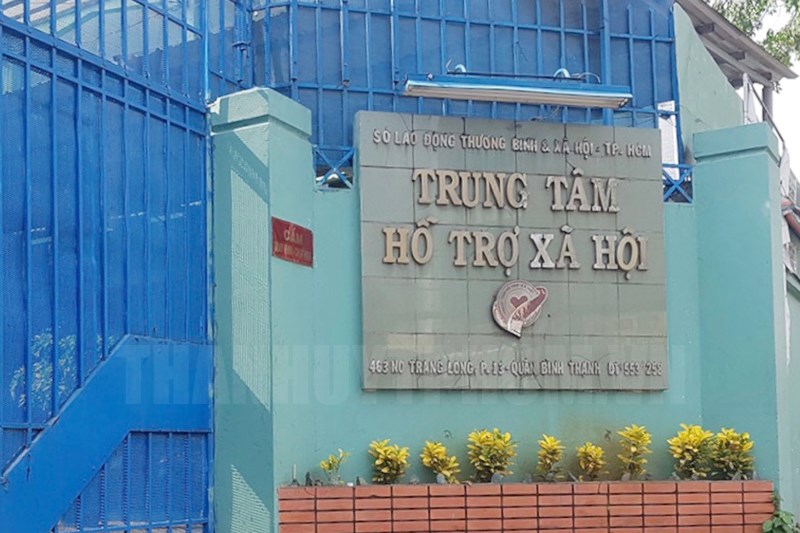Regulations on operating funding of social support facilities in Vietnam
Below are the regulations on operating funding of social support facilities in Vietnam according to Decree 103/2017/ND-CP.

Regulations on operating funding of social support facilities in Vietnam (Image from the Internet)
1. Types of social support facilities in Vietnam
Types of social support facilities under Article 5 of Decree 103/2017/ND-CP include:
- Social support facilities for elderly care.
- Social support facilities for children with special circumstances.
- Social support facilities for people with disabilities.
- Social support facilities for care and rehabilitation of people with mental illnesses and mental disturbances.
- Comprehensive social support facilities providing care for multiple social assistance beneficiaries or individuals in need of social assistance.
- Social work centers offering consultation, emergency care, or other necessary support for those in need of social assistance.
- Other social support facilities as prescribed by law.
2. Regulations on operating funding of social support facilities in Vietnam
According to Article 9 of Decree 103/2017/ND-CP regulating the operating funding of social support facilities in Vietnam:
- For public social support facilities, including:
+ State budget allocations;
+ Service fees from voluntary beneficiaries;
+ Revenues from labor production, and services of the social assistance facility;
+ Aids from domestic and foreign organizations and individuals;
+ Other sources as prescribed by law.
- For non-public social support facilities, including:
+ Self-generated funds of the facility owner;
+ Aids from domestic and foreign organizations and individuals;
+ Service fees from voluntary beneficiaries;
+ Other revenues as prescribed by law;
+ Support from the state budget for providing social assistance services.
3. Duties of social support facilities in Vietnam
According to Article 7 of Decree 103/2017/ND-CP, social support facilities in Vietnam have the following duties:
- Provide emergency services:
+ Receive individuals in need of emergency protection;
+ Assess the needs of the individuals; screen and classify individuals. If necessary, transfer the individuals to medical, educational institutions, police, legal authorities, or other appropriate agencies and organizations;
+ Ensure safety and meet the emergency needs of individuals such as temporary accommodation, food, clothing, and transportation.
- Counseling, therapy for mental disturbances, psychological crises, and physical rehabilitation for individuals.
- Advise and assist beneficiaries in availing of social assistance policies; cooperate with appropriate agencies and organizations to protect and assist individuals; seek and arrange forms of care.
- Develop intervention and support plans for individuals; monitor and review intervention activities, adjust the plans.
- Receive, manage, care for, and nurture social assistance beneficiaries in extremely difficult circumstances, unable to support themselves, without conditions to live with their families or communities.
- Provide initial medical treatment services.
- Organize rehabilitation activities, assist individuals in self-management, cultural, sports activities, and other suitable activities according to age and health of each labor group as prescribed by law.
- Lead and cooperate with units and organizations to provide educational, vocational training, and career guidance to help individuals develop physically, intellectually, personality-wise, and integrate into the community.
- Provide social education and capacity-building services:
+ Provide social education services to help individuals develop the ability to solve problems independently, including parental skills education for those in need; life skills training for children and adolescents;
+ Collaborate with training institutions to organize training and workshops on social work for social work staff, collaborators, or employees at social work service facilities;
+ Organize training courses, seminars to provide knowledge and skills for groups in need.
- Manage individuals receiving social work services.
- Implement measures to prevent individuals from falling into difficult situations, being abused, or subjected to violence and mistreatment.
- Community development:
+ Communicate with residents and local authorities to identify community issues and develop community assistance programs and plans;
+ Propose policies to competent authorities;
+ Build a network of social work staff and volunteers.
- Organize communication activities to raise awareness.
- Lead and cooperate with local authorities to return individuals eligible or voluntarily requesting to leave the facility to their families, reintegrate into the community; support and create conditions for individuals to stabilize their lives.
- Manage finances, assets, officials and public employees, and workers according to regulations.
- Organize and receive financial support, in-kind contributions from domestic and foreign agencies, organizations, and individuals to carry out the facility's activities.
- Provide services upon request and perform other duties as determined by competent authorities.
- Key word:
- social support facilities
- Vietnam
- Cases of land rent exemption and reduction under the latest regulations in Vietnam
- Economic infrastructure and social infrastructure system in Thu Duc City, Ho Chi Minh City
- Regulations on ordination with foreign elements in religious organizations in Vietnam
- Increase land compensation prices in Vietnam from January 1, 2026
- Determination of land compensation levels for damage during land requisition process in Vietnam
- Who is permitted to purchase social housing according to latest regulations in Vietnam?
-

- Number of deputy directors of departments in Vietnam ...
- 15:04, 05/03/2025
-

- Cases ineligible for pardon in Vietnam in 2025
- 14:43, 05/03/2025
-

- Decree 50/2025 amending Decree 151/2017 on the ...
- 12:00, 05/03/2025
-

- Circular 07/2025 amending Circular 02/2022 on ...
- 11:30, 05/03/2025
-

- Adjustment to the organizational structure of ...
- 10:34, 05/03/2025
-

- Notable new policies of Vietnam effective as of ...
- 16:26, 11/04/2025
-
.Medium.png)
- Notable documents of Vietnam in the previous week ...
- 16:21, 11/04/2025
-
.Medium.png)
- Notable documents of Vietnam in the previous week ...
- 16:11, 02/04/2025
-
.Medium.png)
- Notable new policies of Vietnam to be effective ...
- 16:04, 02/04/2025
-
.Medium.png)
- Notable new policies of Vietnam effective from ...
- 14:51, 21/03/2025

 Article table of contents
Article table of contents
